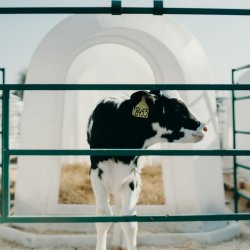The Alarming Role of Factory Farming in Global Warming


Introduction:
Factory farming, characterized by large-scale and intensive methods of animal agriculture, has emerged as one of the biggest contributors to global warming. This article examines the detrimental effects of factory farming on our planet’s climate and ecosystem. By understanding the connection between Factory farming and global warming, we can promote sustainable agricultural practices that are essential for a greener and healthier future.
The Methane Menace:
Factory farming is a leading source of methane emissions, a potent greenhouse gas significantly contributing to global warming. Cattle and other livestock reared on such farms produce substantial amounts of methane through their digestive processes, known as enteric fermentation. According to the Food and Agriculture Organization (FAO), livestock account for 14.5% of global greenhouse gas emissions, with enteric fermentation responsible for over a quarter of this total.
Moreover, factory farming contributes to methane emissions through manure management. Large quantities of animal waste accumulate in confined spaces, releasing substantial amounts of methane into the atmosphere. As a greenhouse gas, methane is about 25 times more potent than carbon dioxide over a 100-year period. Such emissions intensify the greenhouse effect, leading to rising temperatures and climate change.
Deforestation and Land Use:
Factory farming operations also contribute to deforestation, as vast quantities of land are cleared to accommodate livestock and the crops required to feed them. The expansion of factory farming leads to the destruction of carbon-absorbing forests, releasing significant amounts of stored carbon into the atmosphere. This deforestation contributes directly to global warming, as it eliminates natural carbon sinks.
Additionally, the heavy reliance on monoculture crops, such as soybean and maize, for animal feed aggravates the problem. These crops require vast amounts of land and contribute to soil degradation, erosion, and decreased biodiversity. The loss of diverse ecosystems weakens the Earth’s ability to absorb carbon dioxide, escalating the impact of greenhouse gas emissions.
Water Pollution and Carbon Intensive Feed:
Factory farming contributes to water pollution through runoff from manure-laden fields and excessive use of chemical fertilizers. This runoff contaminates water bodies, leading to harmful algae blooms and decreased oxygen levels, causing serious ecological damage.
Furthermore, factory farming demands enormous quantities of resources, including water, to produce animal feed. The production, processing, transport, and storage of these feeds release significant carbon dioxide emissions. For instance, the production of soybean meal, a common component of industrial animal feed, accounts for substantial deforestation and contributes to greenhouse gas emissions.
Sustainable Solutions:
Addressing Factory farming and global warming requires collective action and sustainable solutions. Governments must implement policies that encourage more sustainable agricultural practices, such as reducing subsidies for factory farms and promoting organic farming. Consumers have a role to play as well, by choosing plant-based diets or supporting local, sustainable meat producers. Additionally, investing in research and development for alternative protein sources, such as plant-based and cultured meats, will greatly reduce the reliance on factory farming.
Conclusion:
Factory farming plays a significant role in global warming, largely through methane emissions, deforestation, and water pollution. Recognizing the connection between factory farming and climate change is vital for long-term environmental sustainability. By promoting sustainable agricultural practices and reducing our reliance on factory farming, we can contribute to a greener and healthier planet for future generations. Please visit here Factory farming and global warming for more information.
https://hackmd.io/@rimaakter/ByDBun29p
https://wakelet.com/wake/OaYd0q3b5LEstMiOttf8Y
https://www.zupyak.com/p/4023530/t/the-political-divide-on-animal-rights-a-comprehensive-analysis






Ingen kommentarer endnu